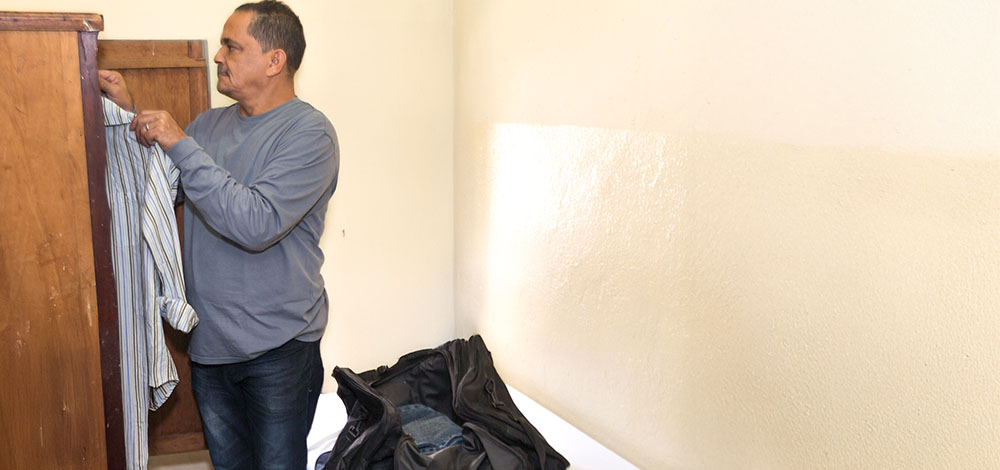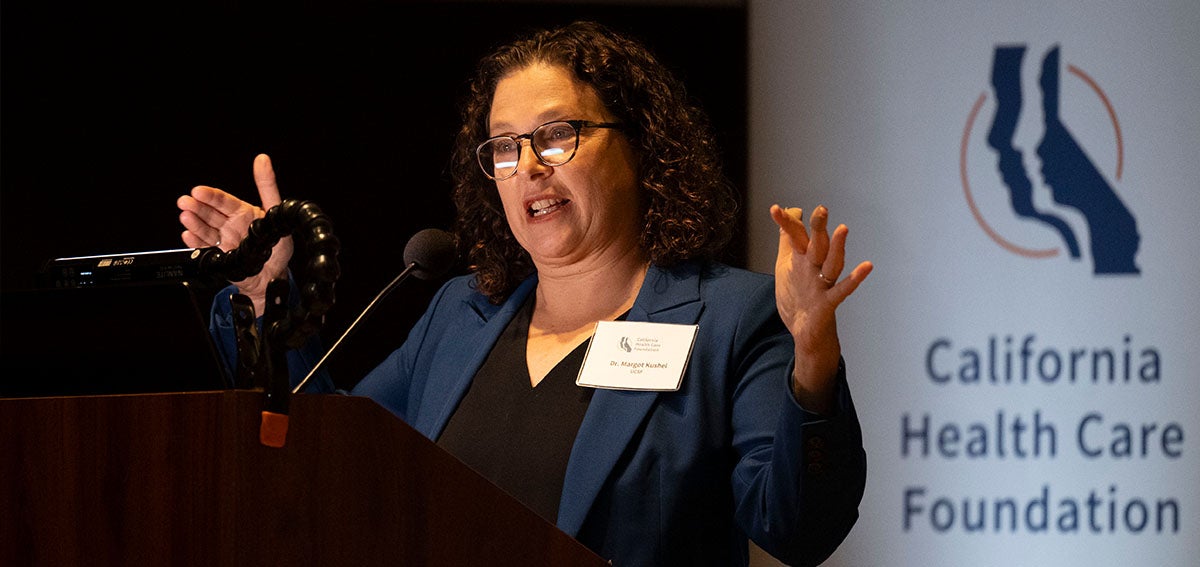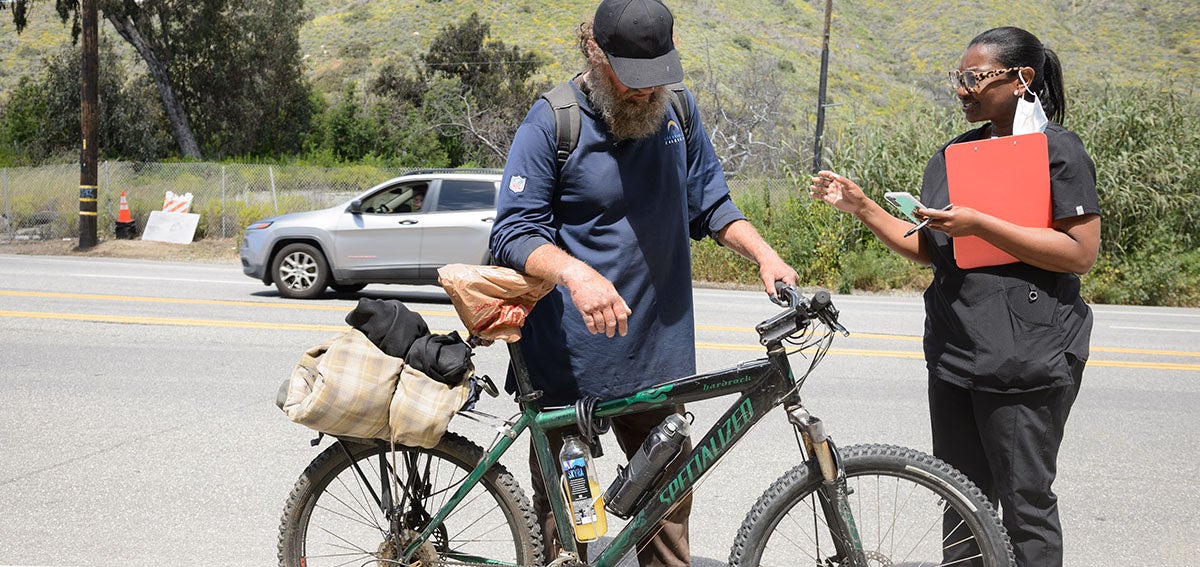|
Getting your Trinity Audio player ready…
|

The importance of elevating the voices of people with lived experience of homelessness and housing as a social determinant of health emerged as themes at AHCJ’s fall summit in Oakland, California.
Nearly 100 clinicians, service providers, researchers, journalists and activists attended “Homelessness and Health Care” on November 2 and 3, an event designed to help reporters tell stories about homelessness more effectively and responsibly.
More than half of people polled in a survey earlier this year said they thought homelessness was a serious problem in their local community; 4 in 5 said that ensuring that everyone has a safe place to live should be a priority of the federal government.
During a conversation about the importance of stigma and language when reporting on homelessness, Dez Martinez, executive director of We Are Not Invisible, who experienced a period of homelessness, said negative perceptions of homeless people can cause mental illness. “We’re all perceived as criminals, drug addicts, alcoholics, or people who just want to live a free life,” she said, adding that many people who saw her on the street thought she wanted to be homeless.
“I was actually fleeing domestic violence, and there were no shelters available,” she said. “Fleeing domestic violence, you are very timid and don’t want to talk to people.”
Martinez prefers the term “street family” because she said “homeless” carries such a negative connotation.
“The best way to reduce the stigma is through education and first-person storytelling … the voice of homeless people is vital to changing how the public thinks about homeless people and homelessness,” said Mark Horvath, the founder and CEO of Invisible People, a nonprofit organization that is giving a face to homelessness via video storytelling and journalism.
In a session with Lisa Halverstadt, a senior investigative reporter at Voice of San Diego, Horvath pushed back against the use of the verb “experiencing” in describing people who are homeless. “Disneyland is an experience,” he said, “but homelessness is ‘hell.’”
California Statewide Study
The summit’s keynote speaker, Margot Kushel, MD, who led the landmark California Statewide Study of People Experiencing Homelessness — the largest representative study of homelessness in decades — shared key findings from the study and asked journalists writing about her research to make sure they emphasize that people living in homeless shelters are homeless. Some politicians are getting this wrong, she said. “We need to get everyone housing. Shelter isn’t solving homelessness. It may be necessary, but it isn’t solving homelessness,” Kushel explained.
Sacramento Mayor Darrell Steinberg, another featured speaker, talked about the Mental Health Services Act, which he co-authored nearly 20 years ago to create funding for mental health services in the state. He also explained why billions raised by that measure and other policy changes have not resolved the problem of too many people with mental illness living on the streets.
“I think that this growth in homelessness is largely the result of systemic poverty,” Steinberg said.
“We have always had people living with severe underlying health conditions, mental health, substance abuse conditions, but we had beds, [and] we had single room occupancy hotels,” he said. “We had more affordable housing options for people.”
Other sessions covered topics such as:
- The efforts of “street teams” addressing critical health needs and acting as bridges to sustained care.
- Reporting on homelessness with sensitivity, including how and when to apply trauma-informed strategies.
- Approaches to addressing the mental and behavioral health needs of people who are homeless.
- What Houston did to get two-thirds of its homeless population into housing and what goes into transitioning people into permanent housing.
The California Health Care Foundation was the local host of the event. The sponsors were The Commonwealth Fund and the Robert Wood Johnson Foundation.
This article first appeared on Association of Health Care Journalists on November 9 and is republished here under a Creative Commons license.
Authors & Contributors

Erica Tricarico
Erica Tricarico is managing editor of the Association of Health Care Journalists. Tricarico produces and edits content to support AHCJ’s many member services, including events, core topic materials, and other web-based resources as well as news releases, conference programs, and newsletters.
She is a graduate of Howard University and the master’s program in journalism at CUNY. Tricarico came to AHCJ from MJH Life Sciences in Cranbury, N.J., where she managed an editorial team producing content on animal care. Before that, she was a freelance health care reporter for Everyday Health.




